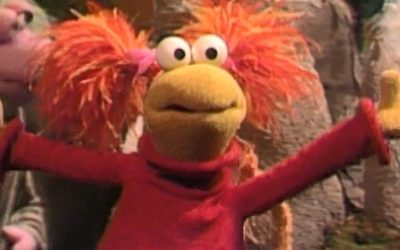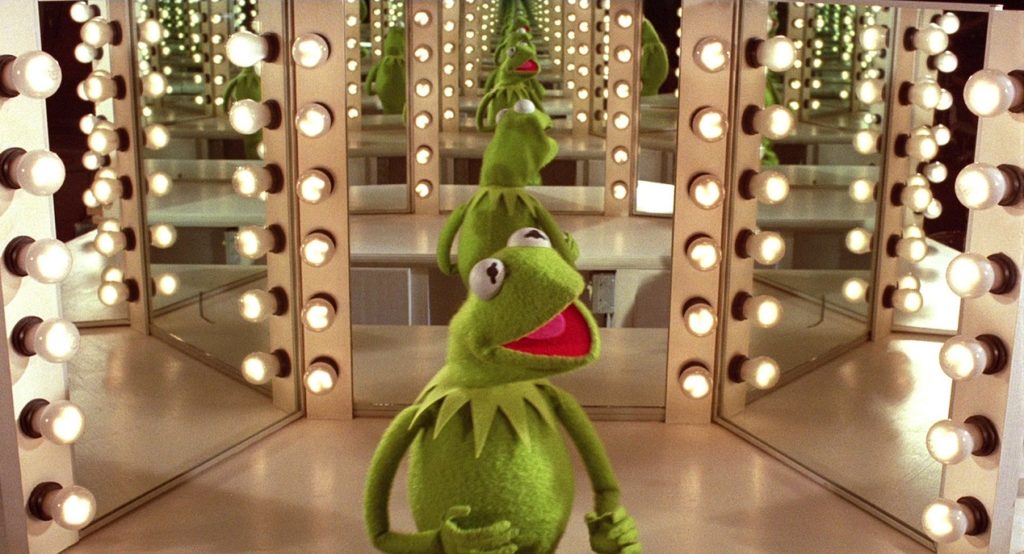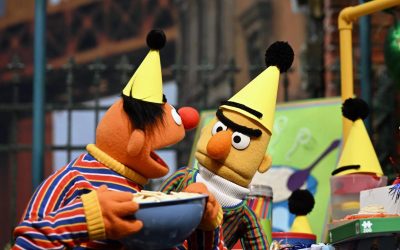Like all Muppet fans, I have a wild nightlife. It’s super exciting. I spent last night bouncing around between episodes of the latest season of Sesame Street on Max. See? I’m cool! I’m sexy! I’m bored.
When I heard from a friend that Sesame Street doesn’t have jokes anymore – that it was all teaching points now – I couldn’t believe it. That sounds like cynical hyperbole, and I do think it’s a small exaggeration, but much smaller than I would have thought. Much of the show is now explanations of activities paired with images and videos in thought bubbles and on tablets.
Would I have ranted about this in a similar fashion a few years ago? Sure. But, by gosh, I wish I could tell my younger self to shut up. Younger me, let me tell you, it gets worse. You think Season 50 is a nadir for Sesame? You don’t know how much farther down this hill they’ll roll by Season 53. It’s miles, pal. Miles. And you know what? That’s okay. We have the option to care less, and we should take that opportunity.
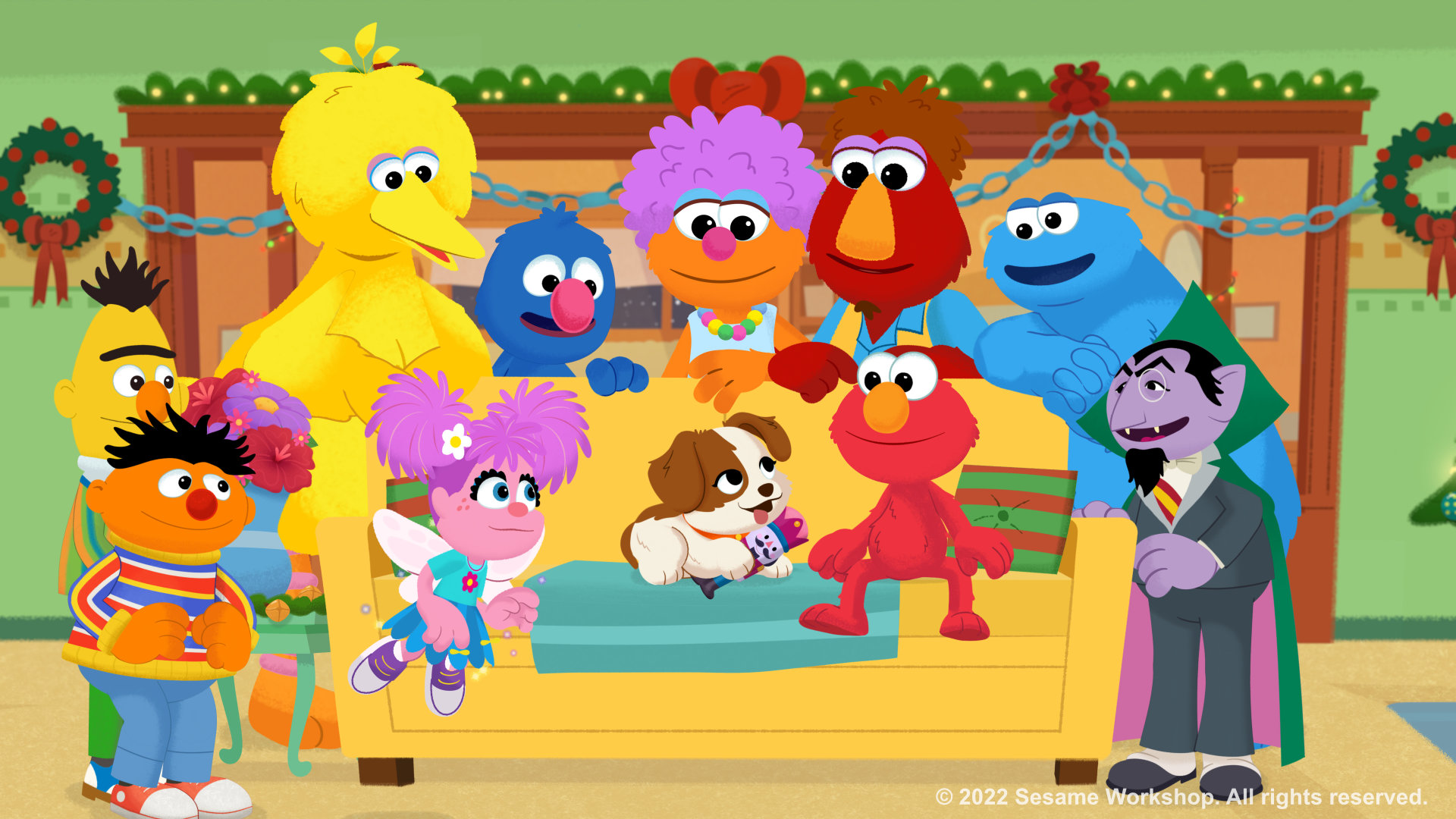
You see, when my Muppet fan friends see the latest Sesame content and feel the need to chat about it, their reaction is always the same: “Who is this even for???” It’s an odd question though, because we all know the answer. It’s for children. That’s fine. We adults don’t need to like it. With most kid shows, we understand that and we don’t really care. There are two reasons why that’s different for Sesame Street.
The first is that we’ve grown very accustomed to Sesame keeping and growing its audience by appealing to the parents, with the logic being that children are more likely to watch and learn from a show that their parents want to watch with them. I like that logic! It sounds great! The trouble is, the show has been moving further and further away from that for the second half of its fifty-year run, and that may be out of necessity.
These days, it’s the norm for both parents to work full time and have extremely busy lives, so TV shows function as the babysitter rather than the parents’ companions. With changes in technology, little kids may have more power to pick their own babysitter in a busy market of shows and YouTube videos vying for their attention. As tempting as it is to be cynical about that and being the old man yelling at the cloud, I think it’s an economic reality that would be better solved by policies that take financial burdens off of parents than by complaining about parents these days until they magically create time for their kids, but I digress.
The second reason is that this is a nostalgia property with a potentially large fanbase. Sesame could choose to recognize their capacity to make popular, comedic content for adults, but they don’t, and it feels disrespectful, not to mention unwise. They’re kind of looking a gift horse in the mouth when they ignore the fandom, which, speaking as the horse in question, we at ToughPigs take personally. Neigh!
I see my fellow fans getting most frustrated over this when the classic characters are totally ignored or left out, as we see in their new animated show, Power of We Club. That show’s cast is entirely made up of modern humanoid characters – no Cookie Monster, no Elmo, no Abby. That may seem strange, but at this point, it makes sense for Sesame to test out whether or not they need the classic characters at all.
Look at it this way… let’s suppose their target audience is three-year-olds. There are two types of three-year-olds: those who’ve enjoyed Sesame Street for the past year or so with no frame of reference for what it was like before, and those who haven’t seen much Sesame and therefore don’t know the characters anyway. The first camp is getting a cartoon with Muppets they know, and the latter is used to this kind of content and will likely have it spoonfed to them by the YouTube algorithm.
I think an inexpensive YouTube show like Power of We Club is an ideal experiment for them – it utilizes the characters that today’s children know, it gives them the chance to test out new characters, it may garner them good press, it’s on the medium that children are watching anyway, it’s short-form, it benefits from an algorithm that’s already giving kids the same sort of content, and it presumably has a budget of about seven dollars. You can try anything for seven dollars. Why not try this?
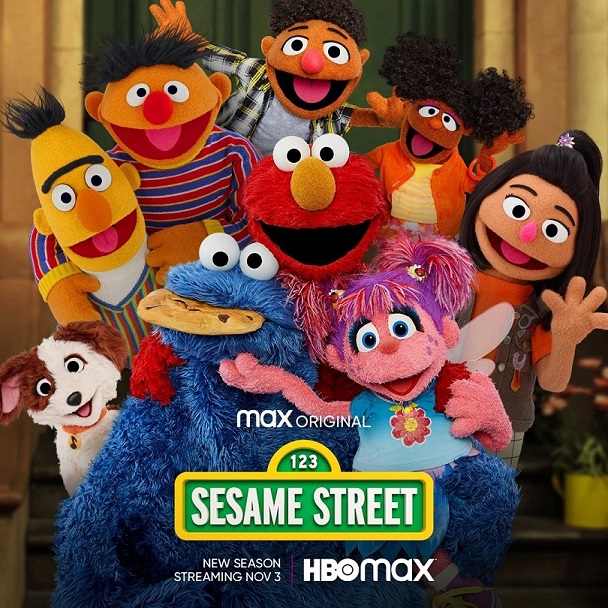
I’m glad that that show is just a spin-off and is not the new season of Sesame Street, but it also kind of is. Sesame Street is perhaps more of a lecture than a show, although, in my experience, lectures usually have more jokes than this – professors like getting laughs. Much of the show is animated now anyway, or at least using animated backgrounds, and not in a way that evokes the old hand-drawn inserts. It all looks cheap, it all feels joyless, and it’s all terribly boring.
But I think kids are into boring things now. Children look at the Disney live action remakes and simply like them, at least as much as the original animated films. I truly believe that today’s children may well prefer the cheap, bland, anonymous, animated stuff over anything with puppets unless the puppets are physically in the room with them. This is the CoComelon generation, and I’m not sure we can change that. All in all, how much should we care about the aesthetic preferences of the next generation? I care much more about whether or not they turn out to be nice people with good values, so I know better than to complain. I know better! I know better.
Yet, darn it, no matter how much I know better, I still wish the show could be a comedy again. Heck, I wish they’d “reboot” the show. Just put together a human cast that matches the vibe of the group they had around the time of Christmas Eve on Sesame Street and redesign the street set to make it feel like home again. Fill the show with comedy sketches and funny, vaudevillian songs again. Get rid of all these Muppet parental figures and go back to the show about a six-year-old orphan bird raised by a commune. I really want to believe parents would watch it with their kids if it was funny! But, if I’m being honest, would they?
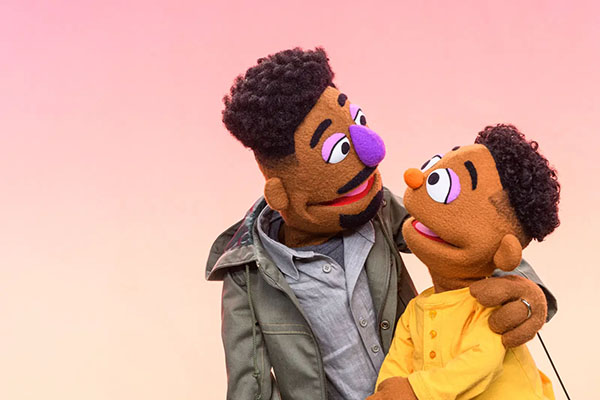
When Sesame Street gets good press, it’s usually not because they ended a sketch with a perfect button or Grover delivered a killer one-liner. They get good press when their creative and curricular decisions bring something new to the show that feels socially important. I suspect they want more of the kind of attention they get for introducing characters like Julia or Elijah & Wes, and that makes sense! While most American kid shows were designed to make a profit, Sesame Street was designed to do good, and that remains a rare and special thing.
Whenever Sesame further diversifies its cast, better represents communities, and creates special programming to give parents tools for managing difficult conversations, they are making the world a better place and proving how valuable it is to have a research-driven non-profit organization creating the media that is shaping today’s children. As I’ve expressed elsewhere on this site, I’m skeptical of the extent to which any of it has actually worked, but if we should want anything to work, it’s that. We should really, really want that to work.
I think we all know that none of that has to get in the way of the comedy. Some of the relatively new characters are really fun and could be highly entertaining if given half a chance. (Tamir is the best example – he has so much personality and is always on the verge of being hilarious, but is sadly trapped in a show that doesn’t allow hilarity.) Further, having the curriculum as the show’s backbone has historically been a great boon to the writers of the show’s sketches and jokes, and that doesn’t need to change.
However, suppose we did have to choose between a helpful show and a funny show. Shouldn’t we want to choose the helpful show? Shouldn’t we be glad that they err on the side of education? I think so. We adults are not entitled to a funny Sesame Street, but the children are owed media that serves them well, and parents deserve media that make their kids healthier and kinder.
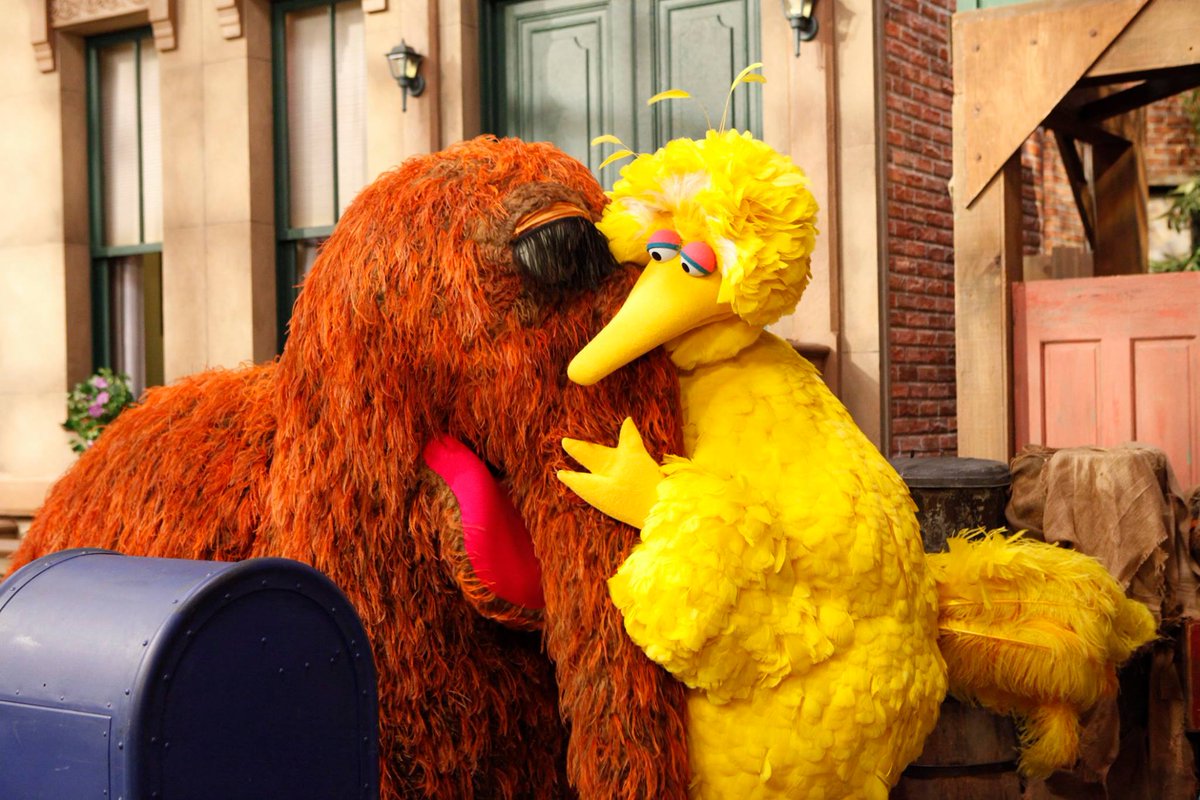
Frankly, we adults can find other sources of laughter. We have options. We’ll be fine. It’s the kids who need something that’s trying harder to do good than the other media that wants their attention. I think that’s the mature and selfless way to look at it, so that’s how I try to look at it, even if it means I enjoy the show less.
Of course, I feel bad for the folks who make the show. I feel bad for new performers who have so much freaking talent that they don’t get to show off. I feel bad for the performers who’ve been there long enough to know what working on that street can be like. I feel bad for all the creators who seem to be, from my perspective as an outsider, bound by the obligations of working for this weirdly structured organization. I even feel bad for Jon Stone, often called the father of Sesame Street, who was concerned that the show was moving in this direction even in the 1990s.
According to Michael Davis’ book Street Gang, there was one night at a university in New York when Stone “spoke frankly and pejoratively that night about his displeasure with the changes imposed on Sesame Street, disparaging the leadership at CTW for, essentially, dumbing down the show.” A local reporter was there and turned it into a story that made its way to the Associated Press, and, consequently, CTW leadership.
They responded by putting an end to his directing days for Sesame and banning him from the set. The part of this story that I find on my mind most often is the quote Davis included from Stone’s daughter, Kate Lucas: “The reporter’s story blew things wide open. When CTW saw it, it was viewed as grounds for firing because there was a clause in his contract about upholding the values of the show. Dad had been such a troublemaker for them for not toeing the line, they were just looking for an excuse. But the people who were running the show on a day-to-day basis were still loyal to Dad, the puppeteers, the actors, the people behind the set, they all loved him.”
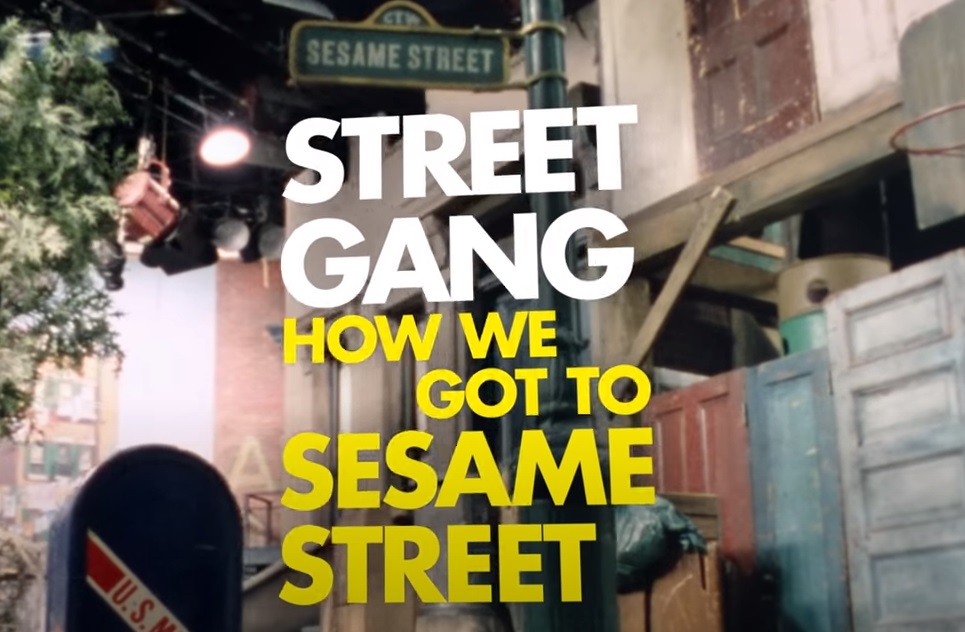
Despite this, I am happiest to be a Sesame Street fan when I watch documentaries like Street Gang and, my personal favorite, The World According to Sesame Street, that focus on the mission. For a long time, their dedication to building a better world made them special. Now, parents who want to watch a show that will help their kids can watch Bluey. If you’d like a little peek behind the ToughPigs curtain, I can tell you that a few members of the team on our private Discord server said they’d rather watch an episode of Bluey than an episode of modern Sesame Street any day.
If Sesame can survive on its current path, that’s great. If it can’t, it will die. I’m not sure that making the show funnier would save it at this point, and they’re certainly not going to change anything with more celebrity cameos – I can watch my favorite celebrities be unfunny on late night if that’s what I’m after. However, since I’m already letting you in on the secret feelings of the ToughPigs team, I’ll tell you that some of us are growing more accepting of the fact that this street may be coming close to its end.
Just imagine if the show had a final, celebratory season to honor the legacy of this incredible series. Wouldn’t that be amazing? We’d all cry a lot, but, dang, the outpouring of love would be tremendous. Instead, we wait. And it’s the slowness of the death that hurts the most.
If the show doesn’t survive, whichever company buys the corpse will likely make the most of the nostalgia brand it has on its hands. Would that be a disaster? Perhaps. But I’ll tell you this much: it wouldn’t be boring.
By JD Hansel
Click here to remember how great things were when that gorilla sang about acorns on the ToughPigs forum!

